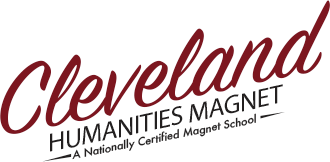10th Grade Literature R.A.P.s
Unit 1: The Literature of the Ancient World
1.1 Pages 160 - 79 Book 9 of The Iliad by Homer
1.2 Pages 305 - 31 Book 16 of The Iliad by Homer
1.3 Pages 422 - 39 Book 22 of The Iliad by Homer
1.4 Pages 467 - 92 Book 24 of The Iliad by Homer
1.5 Pages 125 - 40 Book 9 of The Odyssey by Homer
1.6 Pages 141 - 57 Book 10 of The Odyssey by Homer
1.7 Pages 158 - 77 Book 11 of The Odyssey by Homer
1.8 Pages 178 - 91 Book 12 of The Odyssey by Homer
1.9 Pages 189 - 209 of Antigone by Sophocles
1.10 Pages 210 - 230 of Antigone by Sophocles
1.11 Pages 231 - 252 of Antigone by Sophocles
Unit 2: The Literature of the Republic & Empire of Rome and the Emergence of Catholicism
2.1 Pages 27-41 / Lines 1-525 Part 1 of Book Two of The Aeneid by Virgil
2.2 Pages 41-53 / Lines 526-952 Part 2 of Book Two of The Aeneid by Virgil
2.3 Pages 130-151 / Lines 1-746 Part 1 of Book Six of The Aeneid by Virgil
2.4 Pages 151-161 / Lines 747-1074 Part 2 of Book Six of The Aeneid by Virgil
2.5 Pages 38 - 48 of “Dinner With Trimalchio” from The Satyricon by Petronius
2.6 Pages 48 - 59 of “Dinner With Trimalchio” from The Satyricon by Petronius
2.7 Pages 59 - 72 of “Dinner With Trimalchio” from The Satyricon by Petronius
2.8 Pages 72 - 84 of “Dinner With Trimalchio” from The Satyricon by Petronius
2.9 Chapters 1 - 12 of "The Gospel According to Saint Matthew" from The King James Bible
Unit 3:The Literature Concerning The Catholic Church in The Middle Ages to The Renaissance
3.1 Pages 1672 thru 1679 / Lines 1-205 (PLEASE Read ALL of the Introduction FIRST) of Everyman
Fully discuss what is accomplished with the first two lines of the play. How does the Messenger establish the tone early for the audience? Now look at the entire opening speech in the first twenty-one lines of the play. What are we, as audience members, to be reminded of through this passage? What are we to feel about ourselves here? How? Why? Discuss fully the connotative implication present with the first twelve lines of God’s first speech. Look at the choice of words here in this oration. What are we to conclude about the “Divine Being” here? Is this an image we are accustomed to? How and why is there a sense of irony in the observation made by God at line 28? Is this how God is to be perceived? Fully explain thematic correlations made between observations made in the rest of this speech and issues discussed earlier in “Dinner with Trimalchio”? Make the connections. What conclusions does God come to regarding mankind? As God explains to Death, what are the conditions of the “pilgrimage” (68) that Everyman must take? Discuss fully what Death observes the moment that he sees Everyman for the first time. Do you believe that there is anything wrong with the attitude that Everyman has here? Fully discuss your opinion. As explained by Death, what is expected of Everyman with regard to the “reckoning” (99) that he owes God? Discuss the following line as spoken by Death as a means of introduction: “I am Death, that no man dreadeth. / For every man I ‘rest, and no man spareth”(115-6). What seems odd about the claim made in the first half of the observation when we consider all that we have come to understand about this particular topic? Why? Here, this line encompasses both how thing presently are on earth, according to evidence already presented in the play, as well as how they SHOULD be in the ideal world, given the fact that the Catholic Church composed this piece. Fully explain how there are two drastically different reads of this line. At line 119, what is Everyman’s response to Death’s order? How does Death reply to this? Why? Refer to Death’s early speeches to support this opinion. What is Everyman’s next attempt to thwart this threat? Finally, there is a sense of acceptance on Everyman’s part with the question posed at lines 155-6. What does Death say in response to this question up to line 160? How do you read Death’s response to Everyman’s comment: “I had weened so, verily.” (163)? What is told to us here about life? What does this suggest about how we are to treat our lives here, again given the fact that the Catholic Church composed this piece. Finally, Death leaves, allowing Everyman to prepare for the journey. Observations made in this final speech, from lines 184 to 205, seem hauntingly familiar. Make the connections.
3.2 Pages 1679 thru 1687 / Lines 206-570 of Everyman
3.3 Pages 1687 thru 1695 / Lines 571-921 of Everyman
3.4 Pages 1581 – 1583 / “The Prologue to The Miller’s Tale” from The Canterbury Tales by Geoffrey Chaucer
Geoffrey Chaucer’s The Canterbury Tales, written in 1386, is a series of stories told by people from different rungs of the social ladder as they make a religious pilgrimage from London to the Abbey at Canterbury, roughly 100 miles away, in honor of Sir Thomas a Becket; a Catholic saint martyred in 1170. What does this suggest about this belief system with regard to social classes? The tales are told to pass the time as they make the journey. A Miller is a common, working-class bloke whose job is to grind, or mill, the wheat that has been harvested from the fields into flour. The Prologue to The Miller’s Tale serves an interesting purpose for the reader. What is the mood as established by the Host with the conclusion of the tale told by the Knight? To whom does the Host initially turn for the next tale? Why do you suppose that this is the case? Thinking about what we came to understand with the speeches of Five Wits, how and why is this course of action taken by the Host to be seen as an interesting social commentary? What sort of social tone is the Host attempting to maintain with this course of action? Think about the social class of all characters involved. How does the Miller change this tone? Why? How is this to be seen as a challenge of the behavior and actions taken by the Host? How can this dialogue be seen as a social commentary with regard to social class? By line 33, what has the Miller said about his upcoming tale? Looking at this, as well as the Reeve’s reaction, how will the reader respond to this? Why? The moral of the upcoming tale can be summed up with the Miller’s statement from lines 53 to 56. What does this mean to you? What does the author have to say about the upcoming tale by the end of the prologue? Why? What purpose does this passage serve for the reader? How are we to respond to this? Why?
3.5 Pages 1583 – 1587 / Lines 1-216 of “The Miller’s Tale” from The Canterbury Tales by Geoffrey Chaucer
3.6 Pages 1587 – 1596 / Lines 217-632 of “The Miller’s Tale” from The Canterbury Tales by Geoffrey Chaucer
3.7 Pages 814 - 825 Act 1 of The Tragical History of the Life & Death of Doctor Faustus by Christopher Marlowe
3.8 Pages 825 - 834 Act 2 of The Tragical History of the Life & Death of Doctor Faustus by Christopher Marlowe
3.9 Pages 834 - 857 Acts 3 & 4 of The Tragical History of the Life & Death of Doctor Faustus by Christopher Marlowe
As Act Three begins, in scene one, where does Mephistophilis take Faustus? Why, based on all that has been said up to now, is this an extremely odd destination for these two? In Mephistophilis’ speech ending at line 46, we are presented with a description of the “Ponte Angelo”(III, I, 39), or “Bridge of the Angels”, which is one of the ways to travel from the City of Rome in The Vatican. This is immediately followed with a description of a structure which is part of Vatican City. What is the tone of the imagery here? At what sort of structure are we looking? What message does it seem that The Vatican wants to convey here about itself? What is this to do to our perception of the present situation/location? Throughout this scene, how is the Pope being portrayed as he speaks? Why? What do we learn about the Pope based on the opinion presented at lines 139 & 140? How and why is this statement to be seen as a reference to an idea presented by Five Wits in Everyman? Do you believe that this is what was intended in the morality play? Why? What has happened? What is Marlowe’s point here? Do you suppose that this seems to somewhat justify what Faustus and Mephistophilis are doing in this scene? What is Faustus to learn here? Fully explain your opinion. The remainder of the scene, and Faustus’ general behavior and actions, seems to quite aptly support analysis that was established in the last two RAPs regarding motivation. What is going on here? Why? What has happened to the Scholar of the University at Wittenberg? Why? What do you think is Marlowe’s point here? What is the lesson to be learned thus far in the text? As the Chorus begins Act Four, what has been understood about Faustus? Has he achieved what he wanted? Explain. What seems ironic about the observation made by Martino at scene on, lines 30-3? Again, what is the social statement being made here? Synthesize this with conclusions made in the past two RAPs. As scene two begins, we, again, see how Faustus is using his powers. As scene two proceeds, what do we learn about the character Benvolio? How and why does he seem different from the rest of the characters in this scene? Based on what he says, what do you think is his purpose in the text? Considering all that has been said up to now, and all of the characters that we have been introduced in the text, why has Marlowe put this character in the story? How and why is it possible to identify a thematic parallel between Benvolio’s role in this play and a character presented in Unit Two? Make and fully explain the connections. How and why is the introduction of this character also to be seen as a commentary on social class? How and why is this individual able to see what no one else can? Given Benvolio’s behavior, and the opinions that he voices, what does Faustus do to him? Why? As a result of this action, what has Benvolio decided to do, with the help of Martino and Frederick? Why? What does Faustus do to the three usurpers? Near the middle of scene five, Faustus has a moment of serious reflection, however, he makes what seems to be a rather hubristic and blasphemous comparison in the first half of page 852. Nevertheless, given the events of this reference, what should he come to understand with the reference he just made to The Story of Jesus? Look for the Christians and Catholics in the class for clarification. Think about the fundamental lessons taught with Everyman for support. Look at the pacing and structure of the entirety of Act Four. Given all of the characters that Faustus interacts with here, and looking at his opinions of all of these people, what is the commentary being made here with regard to class and faith? What is Marlowe’s point with the creation of this character, and the journey of exploration made in this play?


